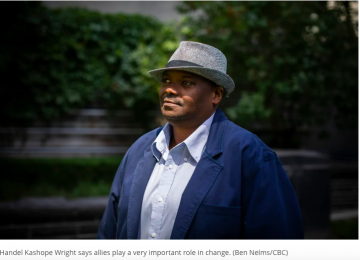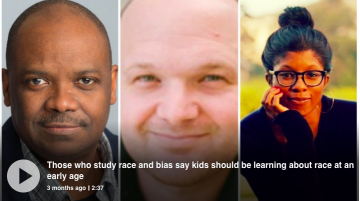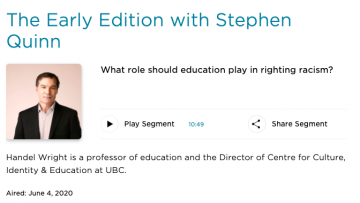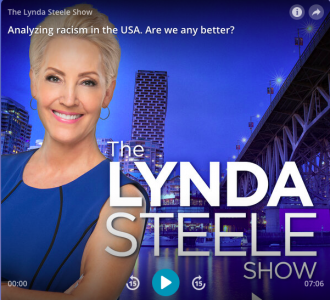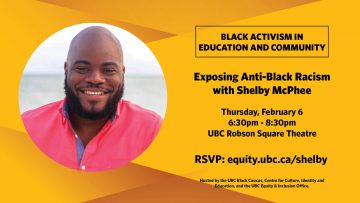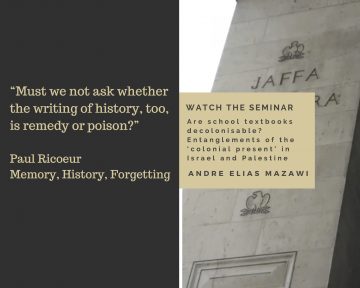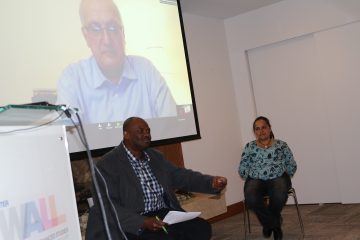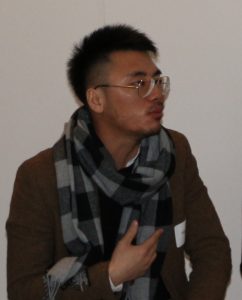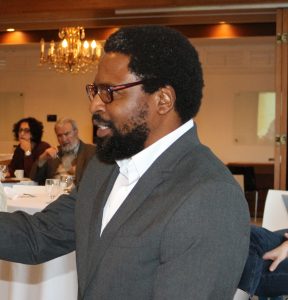CBC On the Coast with Gloria Macarenko: How to be an ally
June 17th, 2020. CBC Radio (CBC On the Coast with Gloria Macarenko) segment on “How to be an ally”
Interview on CBC TV online: How to become an ally
June 17th, 2020. Interview on CBC TV online “How to become an ally: Educators, community leaders explain ways to stand up to anti-Black racism (CBC TV Nadia Jannif)
Tips for discussing race with kids from Handel Wright, Andrew Baron and Rhea Boyd
The worldwide protests against police brutality and systemic racism that began last week after the death of George Floyd are forcing many parents to address issues of race, privilege and injustice based on skin colour with their kids. Here’s how to do it effectively.
Interview on CBC Radio show, The Early Edition with Stephen Quinn
June 4th , 2020. Interview on CBC Radio show, The Early Edition with Stephen Quinn. “What role should education play in righting racism”
Interview with Lynda Steele Show at CKNW: Analyzing racism in the USA. Are we any better?
Analyzing racism in the USA. Are we any better?
May 29th , 2020- Interview with Lynda Steele Show at CKNW about “How the recurrent problem of Police Brutality and killings of Black men can be addressed?”
Watch: “Decolonizing Higher Education Internationally” (panel)
Decolonizing Higher Education Internationally
“The enduring educational challenges of setting horizons of hope beyond modern-colonial imaginaries” by Vanessa de Oliveira Andreotti (UBC)
“What Does it Take to Decolonize Palestinian Higher Education? ” by André Elias Mazawi
“Youth Activism and Academia as Public Sphere” by Handel Kashope Wright.
Watch: “Look! Listen! Speak! Eat! : Chinese Pride on the Table” by Yao Xiao
I take this presentation as an opportunity to share with you how “decolonization” might be Sinicized, and how a Chinese subject like myself might engage with decolonization differently. Based on autobiographical stories, research projects, and informal conversations with community friends, I unpack the affect of Chinese pride for its decolonial relevance in at least two landscapes: (1) in a landscape of international intellectual work, the anxiously ascending Sinophone interests in dealing with/learning beyond Euro-American academic influences; (2) in a landscape of grassroots lives and activism, the mixed compassion, commitment, as well as confusion in speaking with/learning from people who situate and still struggle in webs of metropoles and margins.
“Decolonization: Myth and Reality” by Uchenna Okeja
Theories and practices of decolonization vary across the world. The meaning of the concept is also a matter of contestation. To get to the core of the phenomenon, I propose to consider it as both myth and reality. In this lecture, I examine the ways theories and practices of decolonization across the world are both myth and reality. The argument I make is that the theories and practices of decolonization must cut through their myth to get to the reality they seek. Drawing on the example of South Africa, I conclude with a brief reflection on how this goal can be achieved.

